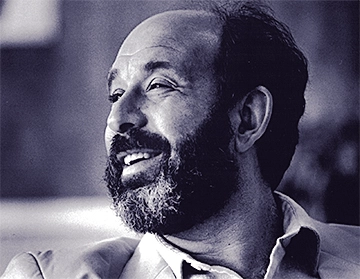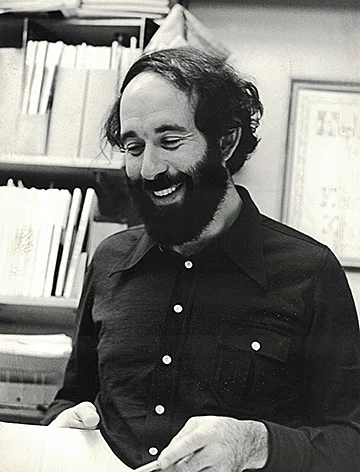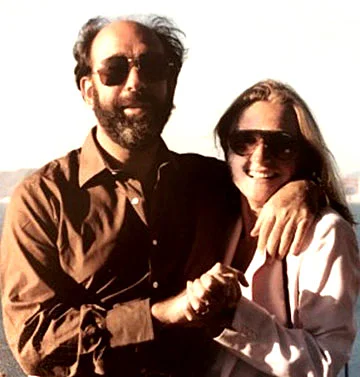About Robert Ornstein

One of the world’s foremost experts on the brain and author of more than 20 books, psychologist Robert Ornstein is perhaps best known for his pioneering research on the bilateral specialization of the brain, which has given us the terms “right brain” and “left brain.” His books have sold over six million copies worldwide, been used in 20,000 university classes, and been translated into dozens of languages. His previous two groundbreaking books The Psychology of Consciousness and The Evolution of Consciousness introduced the two modes of consciousness and a critical understanding how the brain evolved to suit conditions millions of years ago. To meet the challenges of the 21st century, Ornstein emphasized that “conscious evolution” was necessary. He was able to integrate key insights about human nature from traditional cultures into the framework of modern psychology. He was also a frontrunner in the now ubiquitous understanding of the role of mind in health.
He received his PhD in psychology from Stanford (1968) where his doctoral thesis won the American Institutes for Research Creative Talent Award. He was an NIMH pre and postdoctoral fellow and the recipient of multiple awards including UNESCO and UNICEF’s “Best Contribution to Psychology” and the American Psychological Foundation Media award for “increasing the public understanding of psychology.” He taught at Stanford, Harvard, and UCSF.

Though he trained as a psychologist, no single discipline could restrain his inquiring and creative mind. He fearlessly explored and integrated anthropology, brain science, religious studies, genetics, medical science, and much more. His singular gift was the ability to absorb massive amounts of information, think across broad disciplines, synthesize the disparate findings, and write with amazing clarity.
His early research included investigations into how we experience time and the illusory nature of our perceptions of the “real world.” He ultimately came to depict the mind not as a unified whole, but as a composition of multiple processing systems. He continually stressed the need for humankind to understand and move beyond these limited systems to respond to the challenges of the modern world, and dedicated his life’s work to bringing this scientific understanding to the general public and to inspire future generations of academic researchers.
He founded and guided the 1970s award winning journal Human Nature, and in 1969 he established the Institute for the Study of Human Knowledge (ISHK) which he headed until his death in 2018. In the 50 years under his direction, ISHK’s education and publishing programs connected with thousands of professionals and the public at large, contributing to important shifts in public attitudes and policies. In 1989, he was one of a group of distinguished US and Soviet leaders invited to participate in Greenhouse/Glasnost: The Sundance Symposium on Global Climate Change, convened by Robert Redford’s Institute for Resource Management. The summit was one of the first major efforts to expand awareness of the crisis from the experts to the public realm. His essay “Why We Don’t Listen” was included in the resulting book, Greenhouse Glasnost: The Crisis of Global Warming.
ISHK’s ongoing multi-media project The Human Journey, established under his direction, continues to update and record what we are learning about the evolution of human consciousness, how it both creates and offers hope for solving the unprecedented challenges we face today.
A true multi-disciplinarian, Ornstein counted among his collaborators a remarkable roster of leading thinkers and pioneers in their fields: Doris Lessing, Jonas Salk, Idries Shah, Rene Dubos, Paul Ehrlich, James Burke, Edward T. Hall, Hans Selye, William Dement, Philip Zimbardo, Paul Ekman, and many others.

No ivory-tower theorist, Dr. Ornstein carefully chose his areas of endeavor for their overall usefulness to humanity, from a perspective best described as “big-picture.” Coupled with this practicality was a fundamental optimism, a sense that we human beings can, in fact, improve our lot – provided we take a clear-eyed look at our real situation and avoid the pitfalls of complacency, wishful thinking and facile assumptions. His optimism was rooted in real possibilities rather than pie-in-the-sky idealism and was tempered by a tough-mindedness and scientific rigor that have earned him the respect and admiration of his peers as well as those from many other professions.
His final book, God 4.0: On the Nature of Higher Consciousness and the Experience Called God, co-authored with his wife Sally M. Ornstein and published posthumously, offers a fresh understanding of how the brain can produce a transcendent shift in consciousness that some have called “seeing God.” The book points toward a new unity of science and spirituality concerning a reality that people have sought forever. This higher consciousness is not something “out there,” but a quiescent facility in the brain that we can develop. Once unlocked it allows us to see and use vital connections that can help us unite around a common higher perspective.
See All of Robert Ornstein’s Books
Praise for Books by Robert Ornstein

